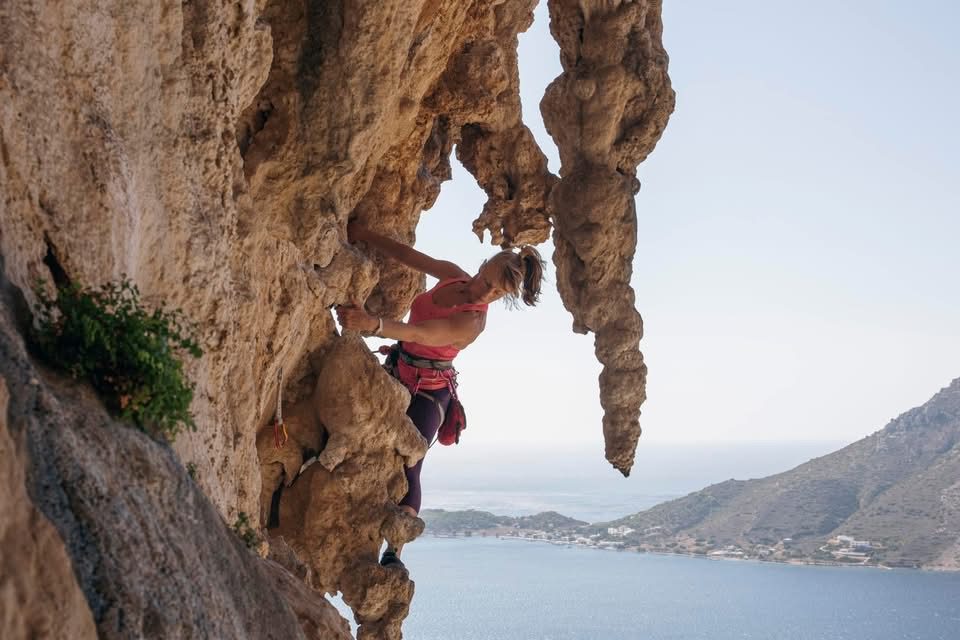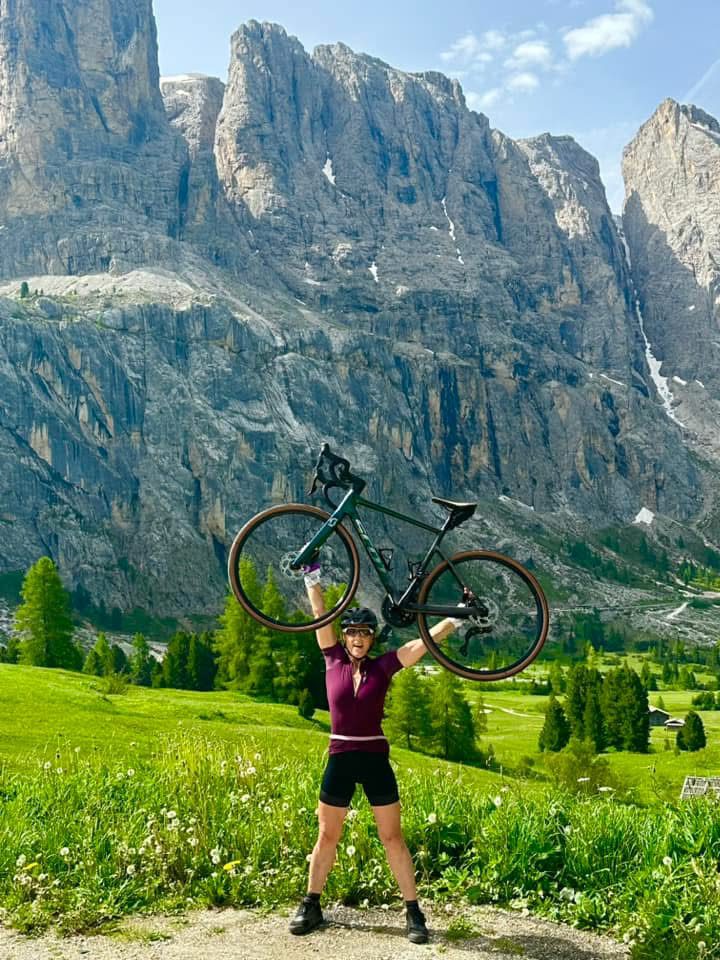
"What I’ve learned over the years is that with the right training, climbing is a life sport … and your body … just like a good red … can continue to improve with age. The principles I’ve implemented—focusing on strength training, prioritising recovery, and fueling my body properly with extra protein—have allowed me to keep progressing on my climbing journey, even as I swan into old age."
Written by Di Westaway OAM, CEO and Founding Director of Wild Women on Top and long term friend of Climb Fit.
.....
What I love most about climbing is that the older I get the better I climb … which makes it unlike any other outdoor physical activity I’ve enjoyed over the years.
Climbing is not only good for us physically, mentally, and emotionally. It's also fabulous fun.
For women, however, it comes with unique challenges, particularly when navigating the peri-menopausal and post-menopausal phases of life. These stages bring hormonal shifts that can affect everything from muscle mass to bone density, making it necessary for female climbers to adjust their training and injury prevention strategies.
If you’re navigating these life stages and have a few big hairy audacious climbing goals coming up, it’s essential to understand how to support your body to continue improving, preventing injury, and maintaining your lean muscle mass.
I’m 64 years old, and I’m thrilled that my climbing has continued to improve now that I’ve finally thrown my babies out of the nest. I climb indoors three times a week, at Climb Fit of course, and outdoors most weekends.
I also make a bi-annual pilgrimage to the beautiful Greek Island of Kalymnos, a paradise for sport climbers of all levels. The island offers a unique combination of climbing on stunning limestone, beautiful weather, amazing Mediterranean cuisine and friendly locals.
It is here that I’ve met climbers from around the world in their seventies and eighties, still dancing their bodies up the spectacular tufas, caves, aretes and cliffs to confirm that age is no barrier.
During menopause, typically between the ages of 45 and 60, women experience a drop in estrogen, progesterone and testosterone. This shift affects various aspects of health, particularly in muscle preservation, bone density, and energy levels. Research shows that muscle mass naturally declines with age and the decrease in estrogen and testosterone further accelerates this.
For climbers, the loss of lean muscle mass can be particularly impactful, as climbing relies heavily on strength-to-weight ratio. Maintaining strength and preventing muscle atrophy is crucial for performance, endurance, and injury prevention.
As Dr. Stacy Sims, an exercise physiologist and nutrition scientist, puts it: “Women are not small men. Menopause is a huge shift, and we need to train, eat, and recover differently to adapt to this new phase.”
Understanding this concept is key for female climbers in their 40s, 50s, 60’s and beyond.

While menopausal women may face different physiological challenges than their male counterparts, the good news is that with the right approach to training, it’s entirely possible to continue improving your climbing as you age.
ARC training helps you manage the intensity of sustained efforts. It involves climbing at a low intensity over a long period—typically on easy, moderate routes or problems, without going to failure. The goal is to build aerobic capacity and improve blood flow to the muscles, enhancing the delivery of oxygen and nutrients to working tissues.
For female climbers, especially those going through menopause, ARC training can be a great way to improve endurance without placing excessive strain on the body. The lower intensity allows climbers to maintain consistent training over time, which is crucial for aging bodies, especially when strength recovery may take longer.
Injury prevention should be a priority for female climbers. The risk of injury increases with age, and menopausal women can be more prone to tendon and ligament issues due to changes in collagen and estrogen levels. To minimise injury risk:
Conclusion
Training differently during peri- and post-menopause isn’t just important—it’s essential for women who want to maintain performance and avoid injuries. By following the latest research and expert advice, you can continue improving and enjoying the sport into old age.
As legendary climber Lynne Hill says, “Age is a number, and it's never too late to improve your climbing if you put in the work.” Remember: menopause doesn’t mean the end of your climbing journey—it can be the beginning of a new chapter in your athletic life.